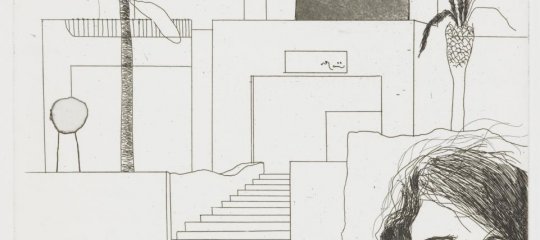1o Διεθνές Συνέδριο στο Κάιρο
Κάιρο, 26-27 Νοεμβρίου 2006Το Γραφείο Συντονιστή Εκπαίδευσης Β. Αφρικής και Μ. Ανατολής της Ελληνικής Πρεσβείας στο Κάιρο και η Αμπέτειος Σχολή Καΐρου διοργανώνουν το 1ο Διεθνές Συνέδριο με θέμα “Η μάθηση και η διδασκαλία της ελληνικής γλώσσας ως μητρικής ή ξένης στις αραβόφωνες χώρες-Παρούσα κατάσταση και προοπτικές για το μέλλον”. Το συνέδριο θα πραγματοποιηθεί στο Κάιρο 26-27 Νοεμβρίου 2006.
Αφορμή πραγματοποίησης του Συνεδρίου είναι το ενδιαφέρον για τη μάθηση και διδασκαλία της ελληνικής γλώσσας και του ελληνικού πολιτισμού που υπάρχει στις αραβόφωνες χώρες. Κύριος στόχος του Συνεδρίου είναι η καταγραφή της παρούσας κατάστασης και η διερεύνηση των προοπτικών για το μέλλον, μέσα από μια ουσιαστική προσέγγιση θεμάτων της μάθησης και της διδασκαλίας της ελληνικής γλώσσας ως μητρικής ή ξένης σε αραβόφωνο περιβάλλον. Ιδιαίτερη έμφαση δίνεται στην παρουσίαση των μαθησιακών και διδακτικών προβλημάτων και των προσπαθειών που καταβάλλονται για τη δημιουργία αναλυτικών προγραμμάτων και βιβλίων για τη διδασκαλία της ελληνικής γλώσσας σε ομογενείς, οι οποίοι ζουν σε αραβόφωνο περιβάλλον, και σε αραβόφωνους ενήλικες.
Οι θεματικές ενότητες είναι οι εξής: Ελληνόγλωσση εκπαίδευση στις αραβικές χώρες, Αναλυτικά προγράμματα και βιβλία για την ελληνόγλωσση εκπαίδευση ομογενών και αλλοδαπών στην Πρωτοβάθμια και Δευτεροβάθμια εκπαίδευση, Αναλυτικά προγράμματα και βιβλία για τη διδασκαλία της ελληνικής ως ξένης σε Αραβες, Θεωρητικές προσεγγίσεις στη διδακτική της ελληνικής ως μητρικής γλώσσας σε αραβόφωνο περιβάλλον, Εμπειρικές και ερευνητικές προσεγγίσεις στη διδακτική της ελληνικής ως μητρικής σε αραβόφωνο περιβάλλον, Θεωρητικές προσεγγίσεις στη διδακτική της ελληνικής ως δεύτερης ή ξένης γλώσσας σε αραβόφωνους, Εμπειρικές και ερευνητικές προσεγγίσεις στη διδακτική της ελληνικής ως δεύτερης ή ξένης γλώσσας σε αραβόφωνους, Διακρατικές συνεργασίες και διδασκαλία της ελληνικής γλώσσας, Η διδασκαλία της ελληνικής γλώσσας στα Πανεπιστήμια των αραβικών χωρών.
Για περισσότερες πληροφορίες: http://gse-cairo.europe.sch.gr
Η είδηση προέρχεται από την ιστοσελίδα της Γλωσσικής Πύλης www.greek-language.gr










